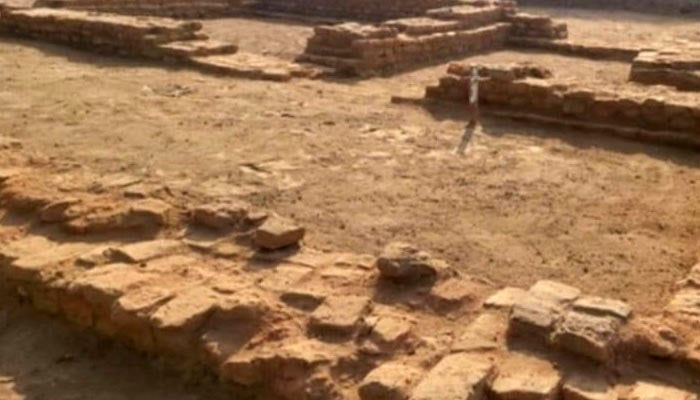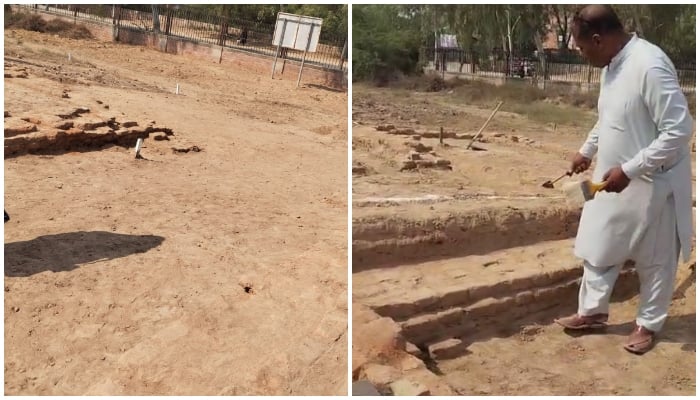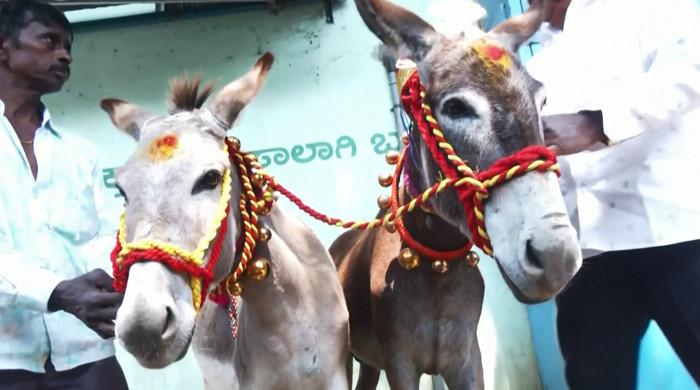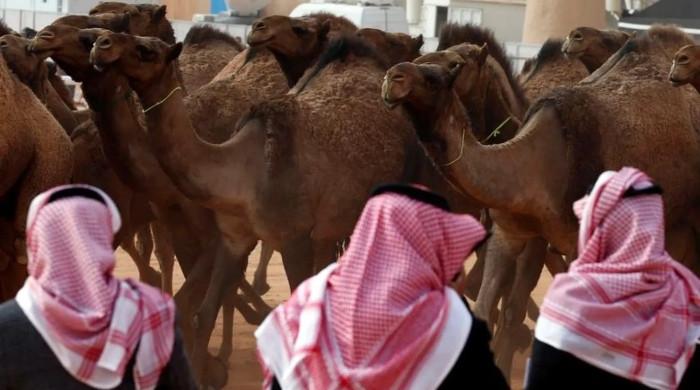Archaeologists discover 16th-century caravanserai in Harappa
Artefacts were also recovered, including clay figurines, miniature toy carts: Punjab Archaeology Dept
November 14, 2025

Harappa's latest excavation has revealed a 16th-century caravanserai, offering fresh insight into the subcontinent's old postal and travel network, according to the Punjab Archaeology Department.
"This discovery provides a crucial lead into the region's early travel system and accommodation practices," said Punjab Archaeology and Museums Department Secretary Dr Ehsan Bhutta, during a briefing at the site.
He said the structure includes designated resting areas for travellers and a water tank, indicating an organised system of stopovers supporting long-distance movement.
He added that multiple artefacts were also recovered during the dig. These include clay figurines, miniature toy carts, and fragments of bangles.

Bhutta said the Punjab government has allocated Rs800 million for excavations across four major historical locations in the province.
He added that the Harappa find will help scholars better interpret the travel and communication network established during Sher Shah Suri's era.
"This discovery will further highlight the region's ancient civilisation and its continuity across centuries," Dr Bhutta remarked.
The Indus Valley Civilisation, also known as the Harappan Civilisation, is an ancient archaeological site in Pakistan, considered the cradle of urban culture in the Indian subcontinent, dating back to around 6000 BC.
Harappa, located west of Sahiwal in Punjab, along with Mohenjo Daro in Sindh, were major urban centres. Excavated in the 1920s, both sites were declared Unesco World Heritage sites in 1980.











